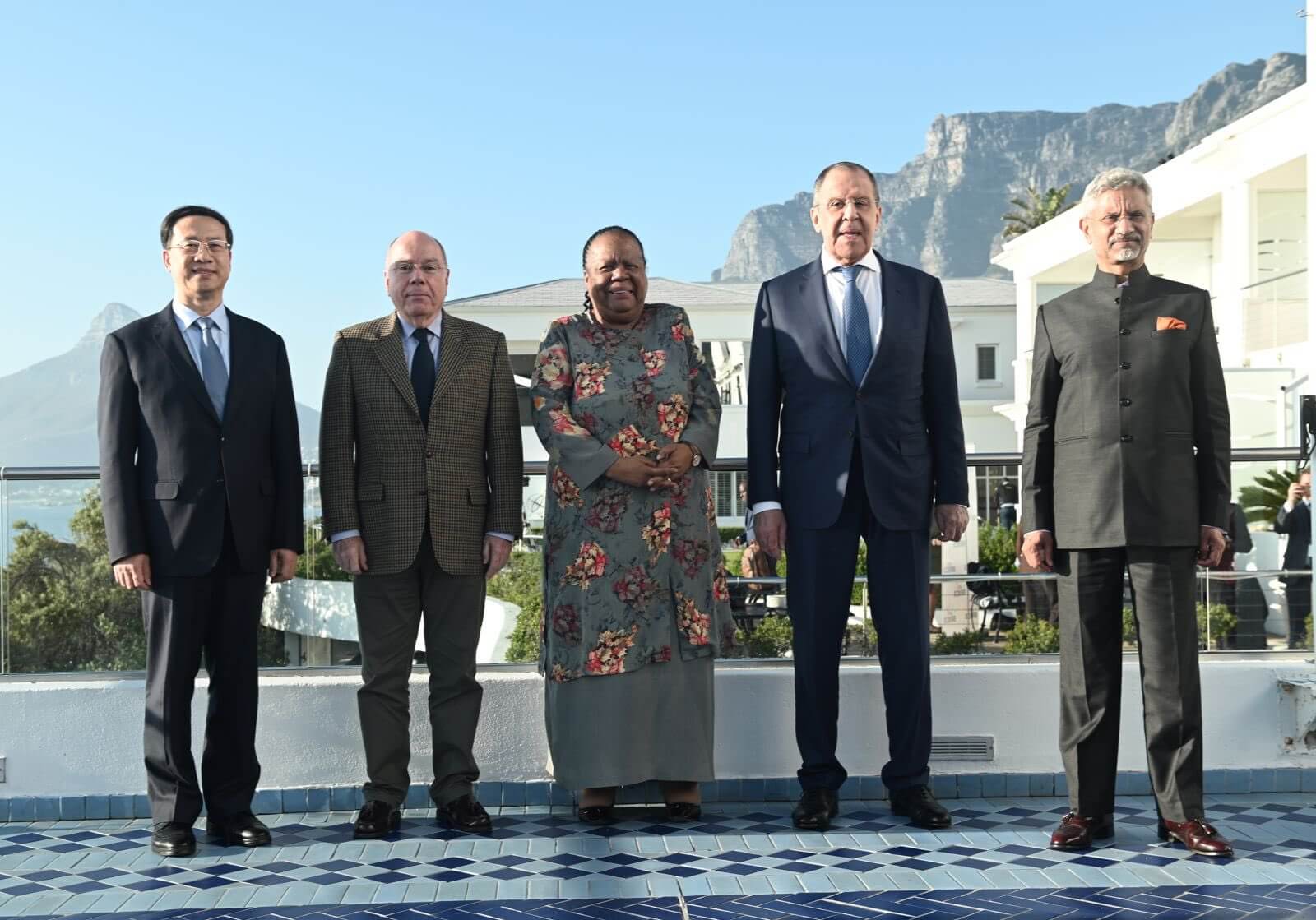During his opening remarks at the BRICS (Brazil, Russia, India, China, and South Africa) foreign ministers’ meeting, Indian External Affairs Minister (EAM) Dr S. Jaishankar urged the BRICS countries to combat terrorism in all its forms and manifestations and said it should not be condoned under any circumstances. The EAM also called upon the BRICS nations to focus on reforming the UN Security Council (UNSC).
BRICS FM Summit
The EAM participated in the BRICS Ministers of Foreign Affairs and International Relations Meeting in Cape Town, South Africa, on Thursday. Chinese Vice Minister MA Zhaoxu, Brazilian Foreign Minister (FM) Mauro Vieira, Russian FM Sergey Lavrov and South African FM Naledi Pandor also participated in the meeting.
At the summit, Jaishankar remarked that a BRICS meeting is essential to India’s diplomatic calendar. He said that the present international environment demands that the countries present approach key contemporary issues seriously, constructively, and collectively. The EAM stated that today’s world is multipolar and rebalancing; therefore, old ways cannot be used to address new situations.
Jaishankar called BRICS a “symbol of change” and said that the effects of the COVID-19 pandemic, stresses generated by the Ukraine-Russia conflict, and economic distresses of the Global South underline the shortcomings of international architecture.
#BRICSza | The Minister of External Affairs of India, Mr. Subrahmanyam Jaishankar arriving for the #BRICS Foreign Ministers’ Meeting in Cape Town. #IndiaInSA🇿🇦🇮🇳@hci_pretoria @IndiainCapeTown @DIRCO_ZA @UbuntuRadioZA pic.twitter.com/FtAv62OO4h
— BRICSza (@BRICSza) June 1, 2023
The Indian minister added that calls by multilateral institutions to make the global order reflective of today’s politics, economics, demographics, and aspirations have not been addressed. Accordingly, he urged the BRICS members to focus on reforming global decision-making, especially that of the UNSC.
Jaishankar said, “Among the key threats to international peace and security is that of terrorism. All nations must take resolute measures against this menace, including its financing and propaganda.”
Additionally, the EAM highlighted that recent experiences have brought to the fore the economic concentration of production, resources, services, and connectivity in a few hands. To this end, he called upon BRICS countries to promote economic decentralization, which he called vital to political democratization.
Using Local Currencies for Trade, Forming Resilient Supply Chains
The BRICS FMs exchanged views on various global and regional matters at the summit. They reaffirmed their commitment to strengthening the BRICS cooperation framework under the three pillars of political and security, economic and financial, and cultural and people-to-people cooperation.
My opening remarks at the BRICS Foreign Ministers’ Meeting in Cape Town, South Africa. pic.twitter.com/YIv2C5C2CS
— Dr. S. Jaishankar (@DrSJaishankar) June 1, 2023
A joint statement released after the summit said, “The Ministers expressed concern about the use of unilateral coercive measures, which are incompatible with the principles of the Charter of the UN and produce negative effects notably in the developing world.”
The ministers also underscored the importance of encouraging local currencies in international trade and financial transactions between BRICS and their trading partners.
The discussions focused on issues ranging from climate change, terrorism, non-proliferation, and ethical use of AI, to human rights, the Sudan conflict, Syria’s inclusion in the League of Arab States, and the Ukraine War.
The first BRIC summit was held in Yekaterinburg, Russia, in June 2009. The group was renamed BRICS after the admission of South Africa in 2010. BRICS countries comprise 41% of the world population and 24% of the global GDP.

